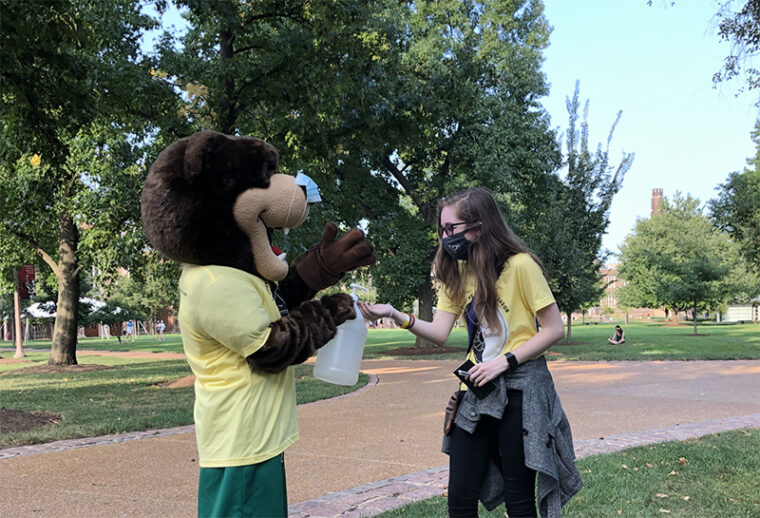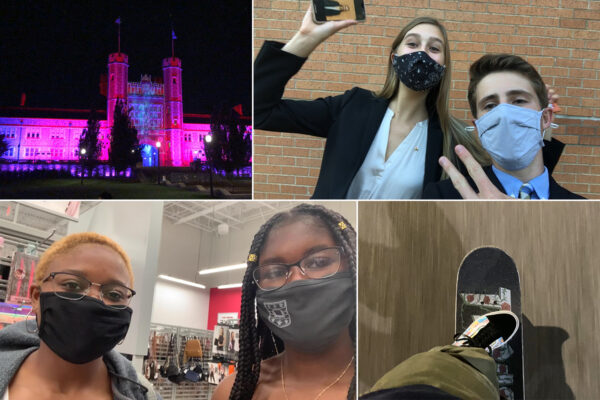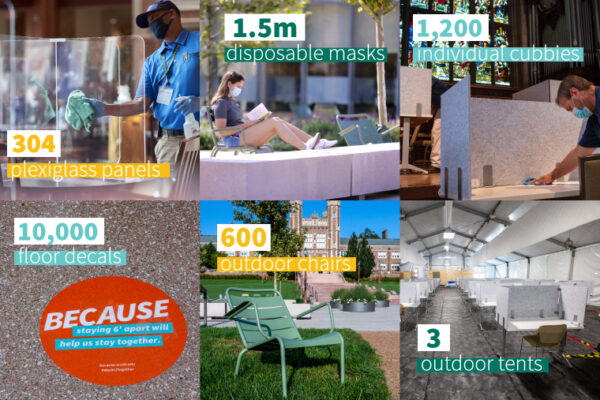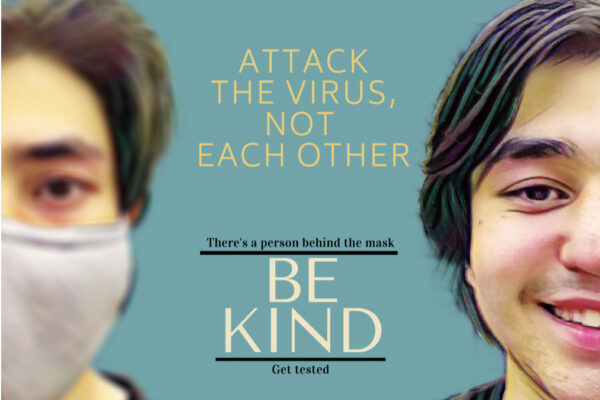With hand sanitizer in one hand and a satchel of disposable masks slung over her shoulder, Washington University in St. Louis sophomore Cami Keahi approached two masked students sitting physically distanced outside of the Danforth University Center.
“You guys are doing a great job staying safe,” Keahi said as she handed each of them a reward of Bear Bucks gift cards. “Thank you.”
Keahi is part of the Washington University Student Health Ambassador program, a new peer-to-peer initiative designed to protect students from the spread of COVID-19. Students are dispatched daily to locations across campus to remind students to wear masks and to confirm students have completed their daily health screenings.
But on this afternoon, Keahi had little to do. Everywhere she looked, masks were on and distance maintained. Eventually, she observed a circle of friends talking without masks. As she walked over, they tugged their masks up. Her recognizable yellow T-shirt, emblazoned with the logo “If you can read this, you’re too close,” let them know she is an ambassador.
“People want to do the right thing,” said Keahi, who is studying global health in Arts & Sciences. “It’s a pain, but no one wants to go home. We all understand this is what we need to do to be here together.”
Staff members of the university’s Department of Athletics and Office of Recreation lead the student health ambassadors with support from the Division of Student Affairs, Arts & Sciences and the McKelvey School of Engineering. Throughout the day, staff and coaches gather in front of Graham Chapel, greeting students and answering questions.
“We love that our student-athletes and other students are committed to serving the broader campus community as ambassadors,” said Jamaica Cannon, assistant director of sport operations. “We want to do our part to help keep everyone healthy.”
Cannon assigns about 75 to 90 ambassadors to campus on weekdays, and 40 to 45 work on weekends. The program is set to continue through September. At that point, many ambassadors will serve as cubby monitors. Read more about cubby stations here.
Cannon stressed that ambassadors are not charged with enforcing university guidelines, only encouraging safe habits.
“We have not had one case of serious pushback,” Cannon said. “That doesn’t really surprise me. WashU has a culture of caring, and you are really seeing that now.”
WashU Response to COVID-19
Visit coronavirus.wustl.edu for the latest information about WashU updates and policies. See all stories related to COVID-19.



